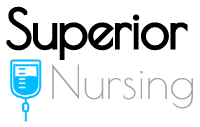Home IV Therapy

Home Infusion Services
Home IV therapy from Superior Nursing provides high-quality, cost-efficient, personalized infusion care to patients in the comfort of their own homes. This unique experience which has now become the norm for many, allows many patients dealing with compromised immune systems the ability to receive, revitalize and recover pre, intra, and post-infusion.
Superior Nursing reduces the stress for those struggling with obtaining transportation. For patients who require weekly or monthly IV immunoglobulins (IVIg), home infusions, and can now greatly reduce the risks and eliminate the hassle of having to coordinate travel.
Infusion care provided in the home improves the quality of life for patients and their families. It can promote better health and, in most cases, is a cost-effective treatment option for many.
Studies have shown home infusion therapy is the preferred method for patients recovering at home or who have long-term health issues. Our clients can get back to their normal activities and use the time they would have spent traveling to do other things, allowing the client to take control of their life.
No, worries, fill out the referral form and we will contact you shortly.
Areas Of Care
Acute Infusion Therapies
| Chronic Infusion Therapies
|

Central Line or PICC line Dressing Care
PICC or PORT-A-Cath are indicated when patient therapy requires repeated vascular access for injection or infusion therapy and/or venous blood sampling.
Some patients require a particular medication that can result in harm if administered via peripheral veins such as the veins in your arms or hands. In that case, your medical provider may require you to obtain a PICC or Port.
Port access is surgically placed in the body by a surgeon within the operating room commonly done under anesthesia depending on the individual. A port-a-cath is usually placed under the skin on the right side of the chest. It is attached to a catheter (a thin, flexible tube) that is threaded into a large vein above the right side of the heart called the superior vena cava. The location of the port is determined by the surgeon and the anatomy of the individual.
To use the port, a nurse sticks a special needle through the skin and into the port’s septum. Ports can be left in for no more than 7 calendar days or once when treatment is done that same day.
A PICC line is commonly used as a short-term delivery. A PICC line dressing change is needed every 7 calendar days to reduce the growth of bacteria at the point of entry. The PICC line comes in a variety of different lengths and sizes and can range from a single lumen or a triple lumen.
A PICC line can deliver multiple medications at once based on the compatibility of the medications administered, along with obtaining blood samples from a particular lumen from the existing port. Studies show PICC lines allow the patient to not be stuck with a needle multiple times, especially when vein access is limited.
A PICC line is usually inserted in a vein in your upper arm, above your inner elbow. The arm used depends on your doctor and the anatomy of the individual, but usually, the nondominant arm is used. The doctor or nurse may use an ultrasound machine to assess the veins in your arm and make sure they’re healthy enough to use.
Both PICC and Central Port accesses require constant care by a trained professional.
Our nurses are highly skilled in port assessments and care. At each visit, the nurse will examine the port for signs of infection or deterioration, and new sterile dressings and caps are changed every 7 days. With proper care and maintenance, a port or PICC line can remain viable for years. Any changes that are found are documented and provided to your doctor for further examination.

Client and Caregiver Education and Instruction
Our nurses work closely with each patient and their support team to educate each member on how to care for their port properly. We stress the importance of keeping the port clean, covered, and dry due to the complications which may arise and can be life-threatening.
Superior Nursing connects with clients to identify any symptoms that could indicate an infection or complication. Infections can cause pain and swell at the port site, fever, nausea, and diarrhea. Clients are told that if a port is dislodged or comes out, to apply pressure and call 911 or go directly to the emergency room.
We understand that there are other life challenges our clients face because of their health issues. We encourage all of our clients to learn more about their well-being and work with them to promote healthy lifestyles and nutrition. We encourage our clients to continue the healing process and explore all avenues of healing, including mind, body, and spirit.
Medications We Work With
Below are a few of the medications we specialize in.
Don’t see your medication listed? No worries, fill out the referral form and we will contact you shortly.
- Actemra
- Aralast
- Belatacept
- Benlysta
- Chemotherapies
- Cimzia
- Entyvio
- Enzyme Replacement Therapy (ERT) Factor
- Evenity
- Exondys
- Fabrazyme
- Fasenra
- Feraheme
- Glassila
- Inflectra
- Injectables
- Inotropic
- Intralipid
- IV Antibiotics
- IV Antifungals
- IV Hydration and Nutrients
- IV Steroids
- IVIG (Gammagard, Gammagard SD, Octagam, Privigen, Gamunex-C, Gammaked,Panzyga)
- Krystexxa
- Lemtrada
- Nucala
- Nulojix
- Ocrevus
- Onpattro
- Orencia
- Prolastin
- Prolia
- Radicava
- Reclast
- Remicade
- Renflexis
- Rituxan
- SCIg, Biologics
- Simponi Aria
- Soliris
- Solu-Medrol
- Stelara IV
- Stelara SQ
- Tepezza
- TPN
- Trogarzo
- Tysabri
- Venofer
- VPRIV
- Xolair
